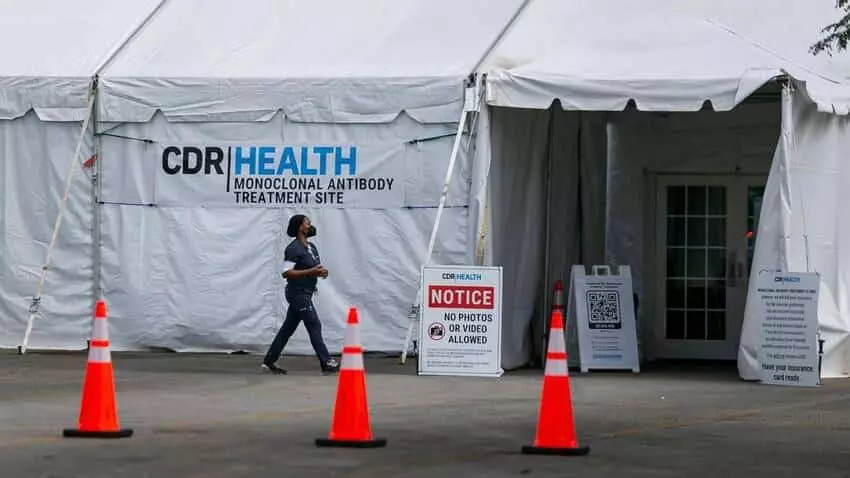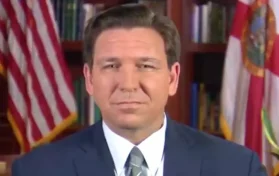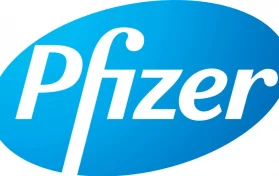
On Monday, the Food and Drug Administration announced it would no longer permit the use of two monoclonal antibody treatments for the treatment of COVID-19. Prior to this announcement, one treatment used Bamlanivimab and Etesevimab (used together) and the Regeneron treatment, which was a combination of Casirivimad and Imdevimab.
As a result, the Florida Department of Health announced the closures of all monoclonal antibody treatment sites in the states. Governor Ron DeSantis protested the announcement, and on Tuesday, during a press conference, DeSantis vowed to “fight back” against a decision he described as “reckless.”
According to the director of the FDA’s Center for Drug Evaluation and Research, Patrizia Cacazzoni, said that “data shows the two antibody treatments are highly unlikely to be active against the omicron variant.”
DeSantis has long advocated for treatments and therapeutics for those who acquire COVID-19. In August, he touted monoclonal antibody treatments as “the most effective treatment” for COVID.
The FDA said that the treatments could be reauthorized in the future, if individuals contract a variant of COVID-19 that responds to the treatment.
Florida’s Deputy Secretary for Health, Kenneth Scheppke, stated that he disagrees with the FDA’s decision. He cited a lack of clinical evidence to support the FDA’s claims. Scheppke sent a letter to the leaders of the U.S. Department of Health and Human Services; in this letter he cited Florida’s ordered over 30,000 doses of both Regeneron and the Sotorovimab monoclonal antibody treatment (which is still permitted for usage). Scheppke also noted that the Department of Health and Human Services had not responded to his requests for an update on that order.
Scheppke’s letter went on to say that because the department had not responded and had delayed a meeting regarding the Florida Deputy Secretary of Health’s request, that perhaps the HHS knew of the forthcoming announcement and failed to respond on that account. Scheppke inferred that the HHS failed to be transparent in communicating with Florida officials.
DeSantis himself had much to say about the FDA’s decision.
DeSantis also cited a lack of clinical evidence supporting the FDA’s decision, and he criticized the timing of the decision, saying “this indefensible edict takes treatment out of the hands of medical professionals and will cost some Americans their lives.”
DeSantis also hinted at possible legal action regarding the FDA’s decision.
Both Jen Psaki and an HHS spokesperson said that DeSantis is promoting “medicines that don’t work.” HHS Spokes Ian Sams went on to say that DeSantis backed these treatments rather than “urging people to take vaccines that do.” Psaki echoed that comment as well.
DeSantis’ press secretary tweeted in response, “Why doesn’t the HHS spokesperson understand that the majority of patients seeking monoclonal antibody treatment, like the majority of Floridians, ARE vaccinated?”
A Florida Department of Health spokesperson tweeted that one of the oral medications for COVID-19, Merck’s Molnupravir, was recognized by HHS as ineffective against COVID-19; yet, the government authorization for this medication is still in effect.
A representative from the Department of Health and Human Services told Fox News that this claim was false; saying that the Merck pill “worked better than the monoclonal antibody treatments now restricted by the FDA.”





